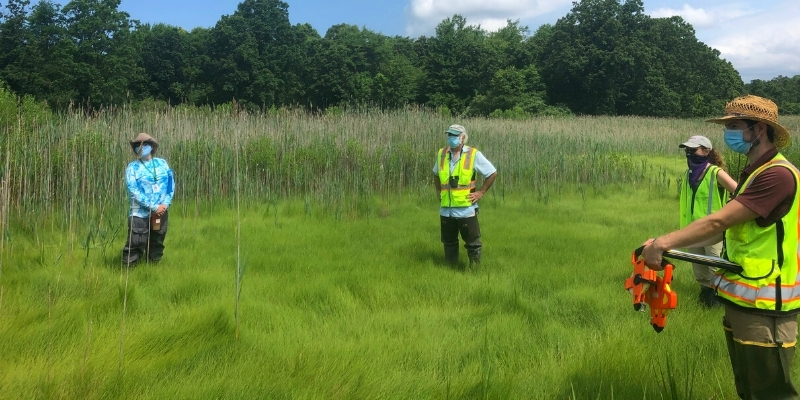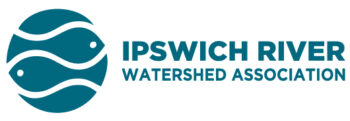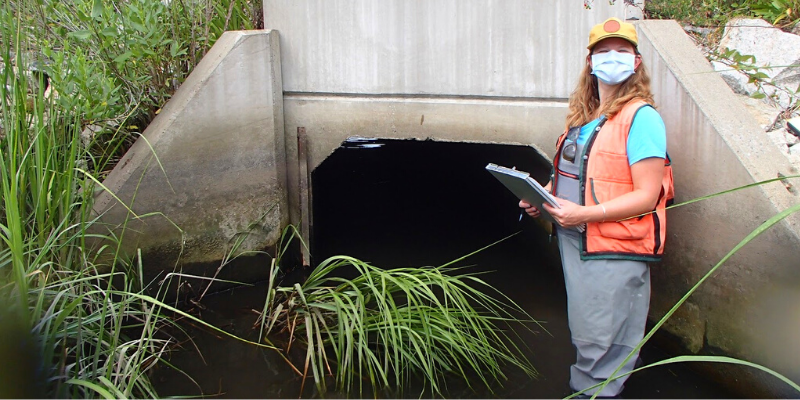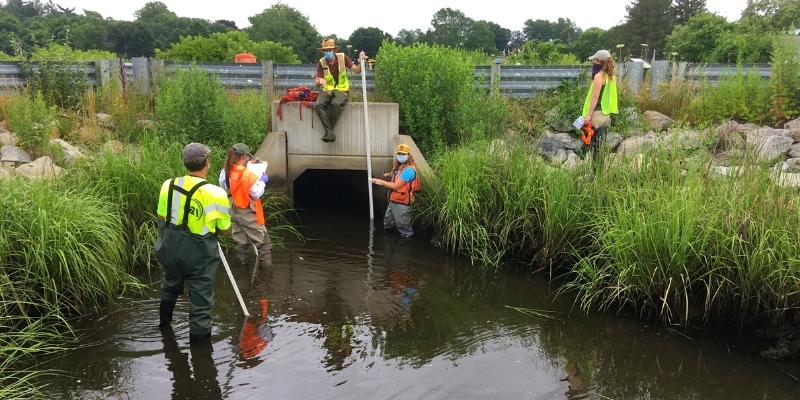Restoration manager, Kaitlyn Shaw promises she has a big grin under her mask, because sharing her knowledge of tidal crossings with interested observers makes her happy.
Last week, on a gorgeous Tuesday, I met up with the Division of Ecological Restorations (DER)’s Stream Crossing Assessment Coordinator Jake Lehan and UMASS professor and North Atlantic Aquatic Connectivity Collaborative (NAACC) Project Lead Scott Jackson to train NAACC observers in the new Tidal Crossing Assessment protocol. Field work in Ipswich River Watershed was completed last year by our dedicated Technician Kristen Thiebeault, currently with the Division of Marine Fisheries, new Ipswich River Board Member Lauren Fitzgerald, and myself, but many tidal crossings outside of our watershed still need to be assessed using the new protocol. Due to our experience in coastal environments, Ipswich River’s role was to test the field protocol and provide training support when needed.
Kaitlyn (holding stadia rod) leads NAACC observers through the tidal crossing assessment survey form, along with DER’s Jake Lehan (atop culvert) and NAACC project lead Scott Jackson (not shown).
We had a great group of dedicated NAACC observers who had already taken the web-based training available on the NAACC website. With trainees representing a diverse set of backgrounds including municipal staff, non-profits, consultants and regional planners this project exemplifies how partnerships and collaboration can lead to a more resilient future for Massachusetts.
In fact, on the same day we participated in a pre-filing meeting with members from five state and federal agencies for the Town of Newbury’s Municipal Vulnerability Preparedness (MVP) Action Grant. Together, we worked to ensure the grant funded tidal crossing replacement project will provide alternative analyses which consider the interplay of environmental permits, licenses and approvals with long-term benefits.
To learn more about why Tidal Assessment protocols are needed and what makes them different from freshwater crossings, check out this brief presentation and comprehensive report.
Scott Jackson (middle) discusses vegetation types during the Tidal Crossing Assessment Field Training Workshop in Somerset, MA.



